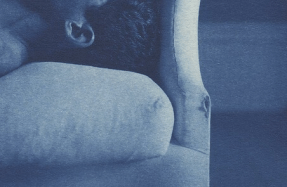two fathers

April 2018
On an arrow-straight stretch of prairie highway, a bus carrying the Humboldt Broncos junior hockey team traveled northbound toward the town of Nipawin, Saskatchewan, home of the rival Hawks. It was a gorgeous late afternoon, bright and clear.
The Broncos were the pride of Humboldt, a farm town of about fifty-nine hundred in central Saskatchewan, where players from out of town live with local families and hockey is like a religion. The team was heading to an elimination playoff game, but the mood on the bus was upbeat: Players, some as young as sixteen, joked around, listened to music, and believed, against the odds, that they could still win the series. They had dyed their hair mustard yellow in playoff solidarity, and somebody had sneaked a half bottle of rum onto the bus in case of celebration.
The Broncos were the most successful team in the history of the Saskatchewan Junior Hockey League (SJHL) yet had been on a bit of a losing streak in recent years. That season was a turnaround year, however, thanks in part to the team’s coach, Darcy Haugan, a forty-two-year-old husband and father from Peace River, Alberta, who believed in recruiting players of good character. When a snowstorm hit town, Haugan would cancel practice and send his guys out with shovels to help the community dig out. He was a fan of one-liners and dad jokes and said things like “It’s a great day to be a Bronco, gentlemen.”
The team went 33–19–3–3 that season, under the leadership of veteran center Logan Schatz, the twenty-year-old captain; Conner Lukan, twenty-one, a force in the locker room; and eighteen-year-old goalie Jacob Wassermann, an SJHL rookie of the year. The Broncos were an exceptionally close group that year. They’d often watch episodes of The Bachelor together and gather before games in the office of trainer Dayna Brons, a much-loved twenty-four-year-old who grew up just outside Humboldt and traveled on the team bus. The players weren’t paid; a couple might go on to play pro somewhere, but most were hoping for a university scholarship, or for a few more years of competitive hockey before getting on with their futures, which must have seemed boundless.
On April 4, 2018, two nights before the game, the Broncos had lost in triple overtime to the Hawks. The crowd stayed for nearly a full extra game of hockey. During a power play in the third overtime, the Hawks slipped the puck past Wassermann. It was a crushing defeat.
Now the Broncos were down 3–1 in the best-of-seven semifinal playoff series. As the bus approached the intersection of highways 35 and 335, some of the guys had started changing into their shirts and ties to prepare for the game.
At the same time, a semitruck loaded with peat moss and pulling a pup trailer traveled westbound. The driver, Jaskirat Singh Sidhu, twenty-nine at the time, was a newly married permanent resident from India who lived in Calgary, Alberta. He was a novice commercial driver, with only a few weeks of road training. He was sober and
You’re reading a preview, subscribe to read more.
Start your free 30 days





